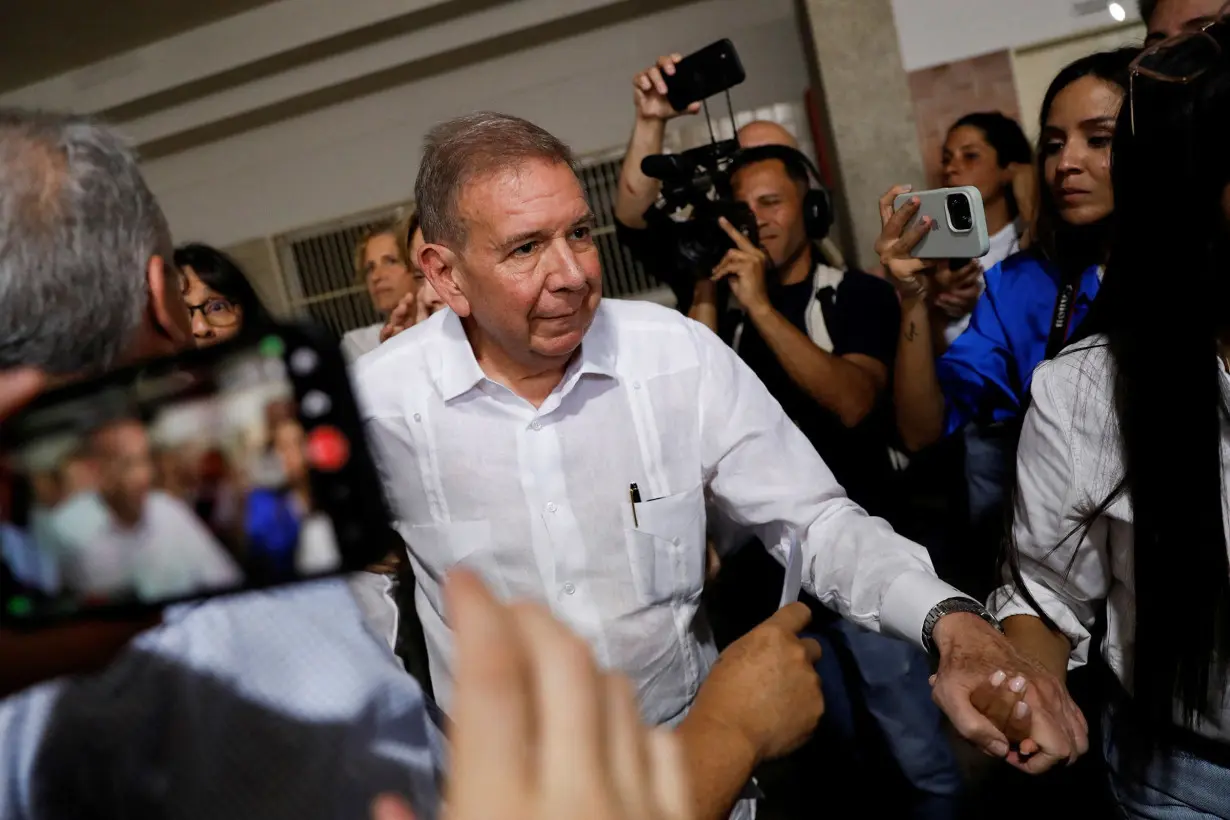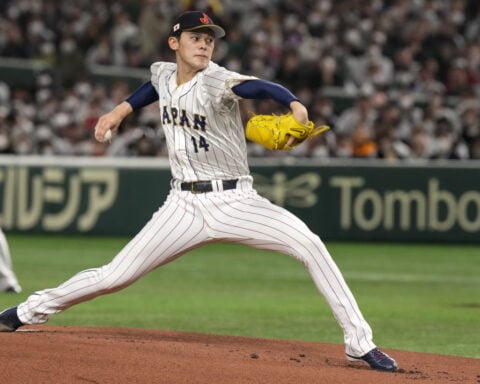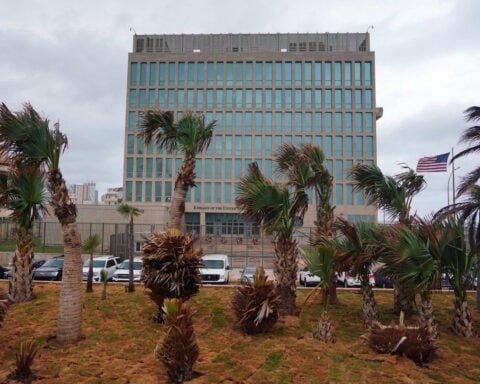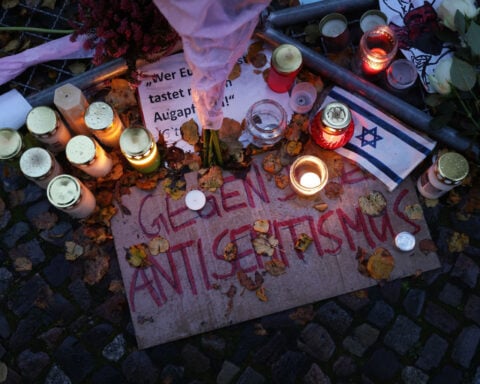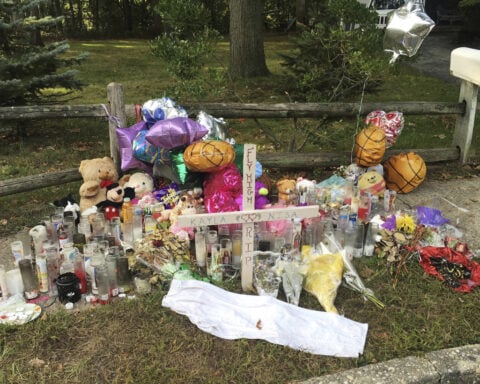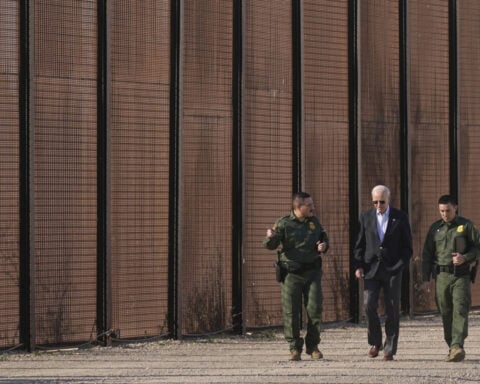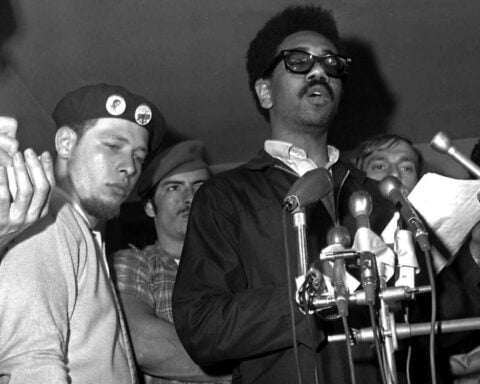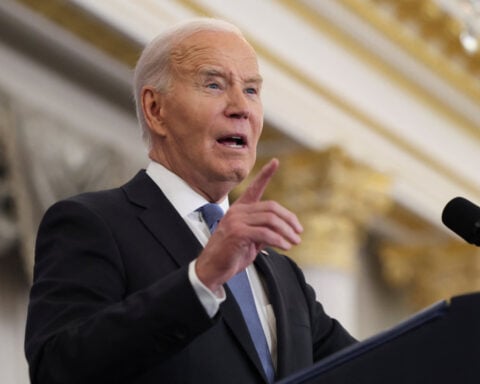(CNN) — Venezuelan opposition leader Edmundo Gonzalez landed in Madrid on Sunday afternoon, Spain said, after fleeing his home country with an arrest warrant accusing him of terrorism, conspiracy and other crimes related to July’s disputed presidential election.
Gonzalez, his wife and Spanish officials landed at the Torrejon de Ardoz military air base, according to a statement from Spain’s Foreign Ministry. He is now seeking asylum in Spain, CNN understands.
Gonzalez said Sunday his departure from the country came despite “coercion and threats” that he would not be allowed to leave – though he did not make explicit who had made those threats. In an audio note shared with CNN en Español by his press team, Gonzalez said he trusts that “very soon, we will continue the fight for freedom and democracy in Venezuela,” and thanked his followers for their messages of solidarity.
He said later that he had decided to leave “thinking of Venezuela and that our destiny as a country cannot, should not be, one of a conflict of pain and suffering.”
He also thanked the Spanish government for granting him protection and called for continued political dialogue within Venezuela.
Venezuela’s Attorney General Tarek William Saab told CNN on Sunday that authorities will close the case against Gonzalez after his departure.
“We, along with Edmundo Gonzalez’s lawyer in the upcoming days will establish the form, time and place to judicially close that case,” he said.
Venezuela has been in a state of crisis since the poll, in which authoritarian incumbent Nicolas Maduro was declared the winner by the country’s electoral authority – a body stacked with his allies – with 51% of the vote.
But tens of thousands of tallies published by the opposition showed a convincing win for Gonzalez. Venezuela’s opposition and multiple Latin American leaders refused to recognize Maduro’s victory, which sparked deadly protests during which thousands were arrested.
In a statement on Sunday, US Secretary of State Anthony Blinken said Gonzalez’s departure was “the direct result of the anti-democratic measures.”
“The election results and the will of the people cannot be merely swept aside by Maduro and the Venezuelan electoral authorities. We stand with González Urrutia in his call to continue the struggle for liberty and the restoration of democracy in Venezuela,” Blinken said.
A day earlier, Venezuelan Vice President Delcy Rodriguez said in a statement that Gonzalez “has left the country and requested political asylum” from Spain.
She added that Gonzalez had been staying at Spain’s embassy in the capital Caracas, as a “voluntary refugee,” and that Venezuela allowed him to leave “for the sake of the tranquility and political peace of the country.”
Spanish Foreign Minister José Manuel Albares said Gonzalez was “at his own request” flying to Spain on a Spanish Air Force plane. “The government of Spain is committed to the political rights and physical integrity of all Venezuelans,” he wrote on X.
The minister’s office would not give further details on how long Gonzalez had been in the Spanish embassy.
However, the foreign ministry of the Netherlands said Sunday that prior to his stay in the Spanish Embassy, Gonzalez had spent weeks in the Dutch embassy in Caracas, moving in a day after the July 28 election and staying there until early September.
“At (Gonzalez’s) urgent request, the day after the elections, I decided to give him hospitality at the state residence of the Kingdom of the Netherlands in Caracas for as long as necessary,” the Netherlands Minister of Foreign Affairs Caspar Veldkamp said in a statement.
Veldkamp said that in early September, Gonzalez announced his intention to leave both the Dutch embassy and Venezuela “to continue his fight from Spain.”
The EU’s top diplomat Josep Borrell said Gonzalez was at the “residence of the Netherlands in Caracas” until September 5.
The Dutch foreign minister said he stressed to Gonzalez the “importance of the opposition’s work and the transition to democracy” but “despite everything, he expressed his desire to leave and continue his fight from Spain.”
Threat to life
Gonzalez’s lawyer Jose Vicente Haro has previously told CNN his client had not sought refuge in an embassy. However, he told CNNE on Sunday that due to his client’s need “to defend his life and personal safety” Gonzalez had taken “different decisions from what he had originally wished for.”
Haro said the decision to leave Venezuela was reached only late on Friday evening and followed “privileged and confidential information” about potential danger to his life.
The lawyer said Gonzalez only had two options: “prison unjustly for crimes he didn’t commit” or “preserve his life” and abandon the country.
Asked why Gonzalez chose Spain, Haro said he “assumes” it’s because one of Gonzalez’s daughters lives there.
His daughter was seen Sunday outside the Torrejon de Ardoz military air base in Madrid, after Gonzalez and his wife arrived on a Spanish military plane.
The lawyer said the situation outside Argentina’s embassy wasn’t a major factor in Gonzalez’s decision to seek asylum, but it was something Gonzalez considered.
On Friday, Venezuelan security forces surrounded the Argentine embassy in Caracas after two opposition members took refuge inside, joining four others who took refuge there earlier this year.
“Many aspects were taken into account, if we had a siege situation in the Argentine embassy, we could have a situation in any embassy accredited in Venezuela,” Haro said.
‘Forced into exile’
The Organization of American States (OAS) said Sunday that Gonzalez had effectively been “forced into exile” after an arrest warrant was issued by Venezuela Prosecutor’s Office last Monday.
The Prosecutor’s Office had accused him of “crimes associated with terrorism” in relation to the disputed election and said he had failed to respond to three summons regarding its investigation into an opposition website that posted results from the contested vote.
When asked about the “coercion and threats” that Gonzalez said led to his decision to request asylum in Spain, Venezuela’s Attorney General said on Sunday that the pressure and threats came from opposition leader María Corina Machado.
“Gonzalez was the victim of pressure from his party that forced him to make decisions,” he said. “There is an absolute fracture in that extremist opposition.” CNN has reached out to Machado for comment.
Though the Venezuelan government says it “allowed” Gonzalez to leave, it has not explained why it granted safe passage to a citizen wanted by the justice system, other than saying it was for the sake of political peace. The Maduro government has granted similar safe passages to opposition leaders in the past, with critics accusing it of silencing the opposition through enforced absence.
The OAS said Gonzalez “only did what was required” by the Venezuelan government’s actions.
“The (Maduro) regime has not only failed to produce the slightest evidence of an electoral result but has forced into exile the candidate Edmundo Gonzalez,” the OAS said in a statement.
The United States has pressured the Venezuelan government to release specific data regarding its presidential election, citing concerns about the credibility of Maduro’s claimed victory. It has also seized one of Maduro’s planes, saying it was bought in violation of US sanctions.
Opposition figure Juan Pablo Guanipa posted on his X account that, though Gonzalez had left, the opposition must continue “fighting” to ensure that their claimed election win is respected.
“The important thing is that he was elected, that his election was proven and that popular sovereignty must be respected,” he said.
The-CNN-Wire
™ & © 2024 Cable News Network, Inc., a Warner Bros. Discovery Company. All rights reserved.

 Stock market today: Asian stocks mixed ahead of US inflation data
Stock market today: Asian stocks mixed ahead of US inflation data
 TikTok seeks to reassure U.S. employees ahead of Jan. 19 ban deadline
TikTok seeks to reassure U.S. employees ahead of Jan. 19 ban deadline
 US won't seek charges in unarmed Black motorist Ronald Greene's fatal 2019 arrest
US won't seek charges in unarmed Black motorist Ronald Greene's fatal 2019 arrest
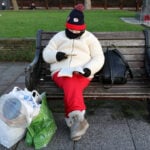 Euro zone households could increase consumption, ECB chief economist says
Euro zone households could increase consumption, ECB chief economist says
 Foreigners sold South Korean equities last month by most since early 2020
Foreigners sold South Korean equities last month by most since early 2020
 As fires ravage Los Angeles, Tiger Woods isn't sure what will happen with Riviera tournament
As fires ravage Los Angeles, Tiger Woods isn't sure what will happen with Riviera tournament
 Antetokounmpo gets 50th career triple-double as Bucks win 130-115 to end Kings' 7-game win streak
Antetokounmpo gets 50th career triple-double as Bucks win 130-115 to end Kings' 7-game win streak
 Zheng loses to No 97 Siegemund, Osaka rallies to advance at the Australian Open
Zheng loses to No 97 Siegemund, Osaka rallies to advance at the Australian Open
